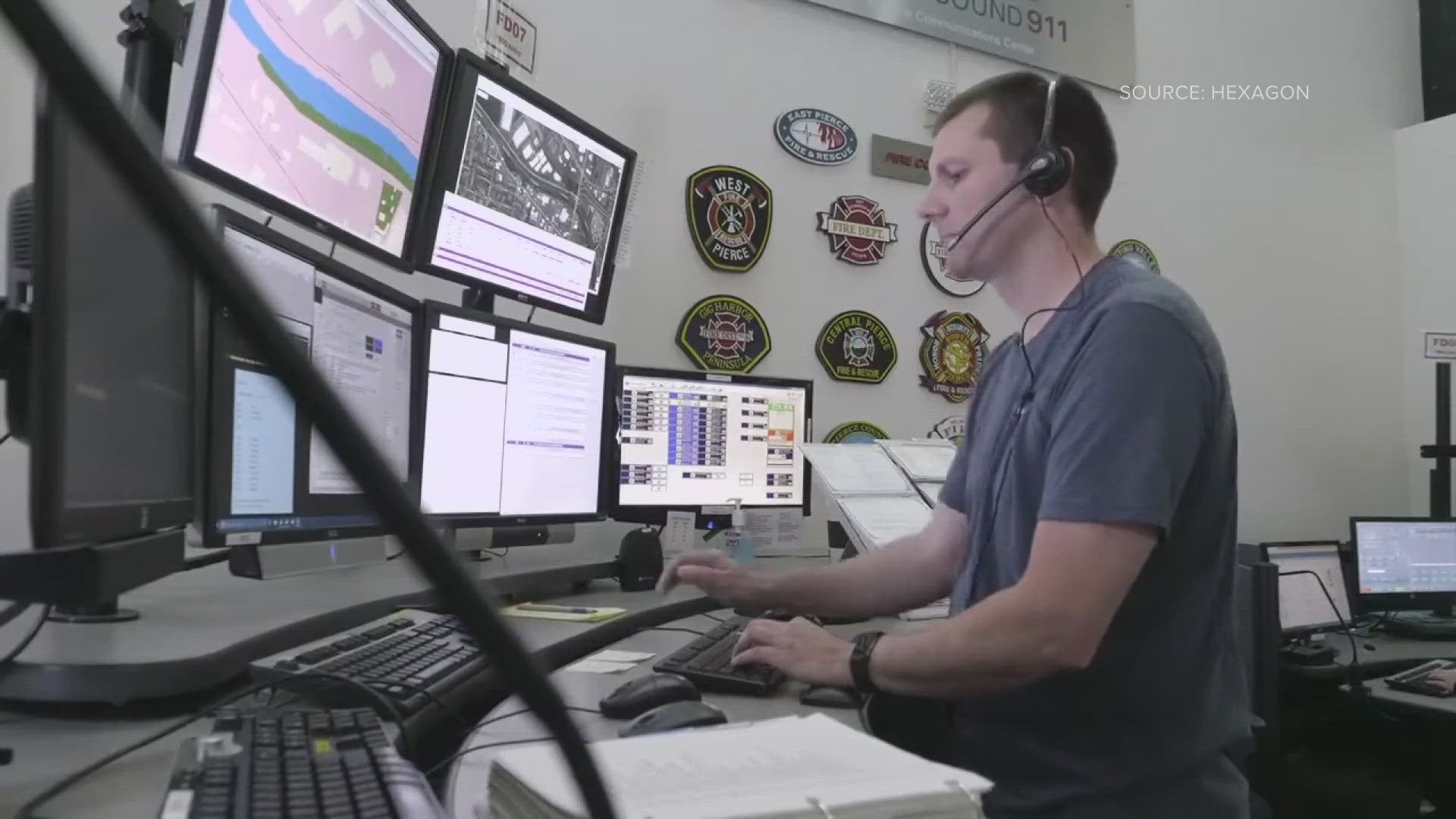GREENSBORO, N.C. — You might associate artificial intelligence with automated text messages, or scammers that use the technology to make public figures look bad.
Pretty soon, Guilford County residents will see the good AI can do.
Guilford Metro 911 plans to use AI for non-emergency calls. WFMY News 2's Nixon Norman learned how it will work.
Guilford Metro 911 emergency communications center, responsible for dispatching police, fire and emergency medical services across the county, will deploy Hexagon’s industry-leading computer-aided dispatch system, HxGN OnCall Dispatch.
OnCall Dispatch enables enhanced call-taker and dispatcher performance and productivity through optimized user interfaces and workflows. Its field mobility capabilities will allow first responders to have laptop or smartphone access to the same real-time information that supervisors and dispatchers are seeing, improving in-the-field coordination and providing speech-to-text when hands-free communication is necessary.
Guilford County dispatchers are desperate for upgraded technology. The hope is that AI will take some of the workload off dispatchers as well.
Vice President of the Hexagon, Tammy Heaton, said the software will only be used for non-emergency calls.
"The vision is not ever for AI to answer the phone on an emergency call," Heaton said.
It's something Guilford Metro 911's Executive Director, Melanie Jones, also made clear.
"911 calls will never be answered by AI, we will always have humans answering 911 calls," Jones said.
What it will be used for, is when Guilford County residents call into non-emergency numbers that dispatchers would normally answer.
It will be at least a year and half before these technologies are used in Guilford County.
Both woman said that the use of AI technology will help take a large workload off dispatchers.
Jones said she visited a dispatch center in Colorado already using similar technology.
"Their non-emergency lines are now being answered at somewhere between 35-45% by AI, and I mean, to take that kind of workload off of our 911 dispatchers would be incredible," Jones said.
She said if someone calls the non-emergency line to report a stolen bike, for example, AI can point that person in the right direction on how and where to report it.
"AI knows what to listen for, and it will say 'okay would you like to report that' and then it will refer them to a portal to report it," Jones said.
You may be wondering, why the switch now? Jones said they are currently working with tech from the 1990's that needs to be updated.
"It's too cumbersome. There's a lot of mouse clicks, a lot of typing that has to be done and the new system will not have all of those tasks on our communicators," Jones said.
A concern many may have about the new technology — is AI capable of taking a dispatchers job? Heaton said that's not the case here.
"Hexagon's AI that is embedded into our technology will not replace a human dispatcher," Heaton said.
Jones said that in every demo she's seen of this kind of technology, there's always an option to talk to a real-life dispatcher if need be.

